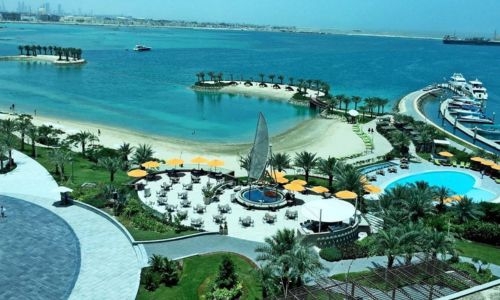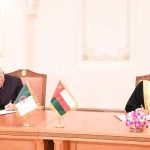The Tuesday sitting of Bahrain’s Parliament was interrupted by a 45-minute prayer break following a heated confrontation involving MP Hamad Al Doy. Al Doy had received complaints related to his social media posts about beach behavior on Amwaj Island, where he accused individuals of inappropriate conduct. The Amwaj Islands Central Owners Association formally objected to his posts, leading to tensions between Al Doy and other MPs, particularly Ahmed Al Salloom and Khalid Buanaq. Al Doy was given permission to speak by Speaker Ahmed bin Salman Al Musallam, where he expressed his frustration over the situation.
As the confrontation escalated, the Council Chairman urged Al Doy to sit down, but Al Doy refused, expressing his determination to speak his mind. This further fueled the tension in the chamber until newly elected MP Abdulwahid Qaratah and other MPs intervened to lead Al Doy out of the chamber to diffuse the situation. The Chairman then announced a prayer break to allow for a cooling-off period. Despite the disruption, Al Doy vowed to return to address the issue, emphasizing his duty to the public and his conscience.
Prior to the incident, there had been a request made to lift Al Doy’s parliamentary immunity in response to the association’s complaint against him. The association later announced their intent to pursue a defamation suit against Al Doy through their legal advisor. In response, Al Doy accused the association of distorting his words and concealing the truth. The exchange of accusations only added to the tension surrounding the situation, highlighting the contentious nature of the issue at hand.
The incident involving MP Hamad Al Doy and the Amwaj Islands Central Owners Association sheds light on the complexities of parliamentary politics and the role of social media in public discourse. The clash between Al Doy and the association underscores the challenges faced by lawmakers in addressing public concerns while navigating legal and ethical boundaries. The exchange of accusations and threats of legal action further complicates the matter, creating a contentious atmosphere within Bahrain’s political landscape.
The interruption of Parliament’s sitting for a prayer break reflects the need for diplomacy and conflict resolution in addressing internal disputes. The intervention of fellow MPs to de-escalate the situation demonstrates the importance of unity and cooperation within the parliamentary body. Despite the disruptions and disagreements, the commitment of MPs to uphold their duties and responsibilities to the public remains paramount, as seen in Al Doy’s determination to return and address the issue at hand.
In conclusion, the incident involving MP Hamad Al Doy serves as a reminder of the challenges inherent in political discourse and the importance of constructive dialogue in resolving disputes. The clash between Al Doy and the Amwaj Islands Central Owners Association highlights the need for accountability and transparency in addressing public concerns. As Bahrain’s political landscape continues to evolve, it is essential for lawmakers to navigate these challenges with integrity and a commitment to serving the public interest. The eventual resolution of this conflict will be crucial in shaping the future dynamics of Bahrain’s parliamentary system.










